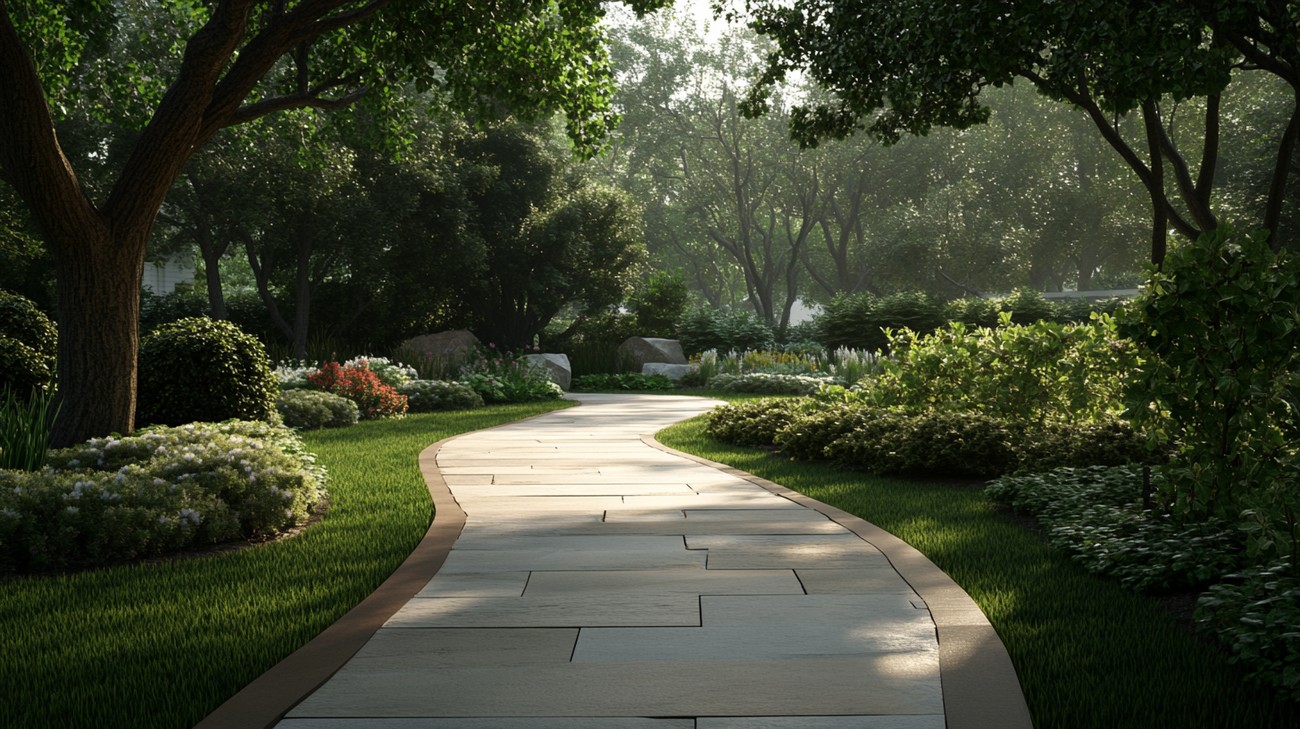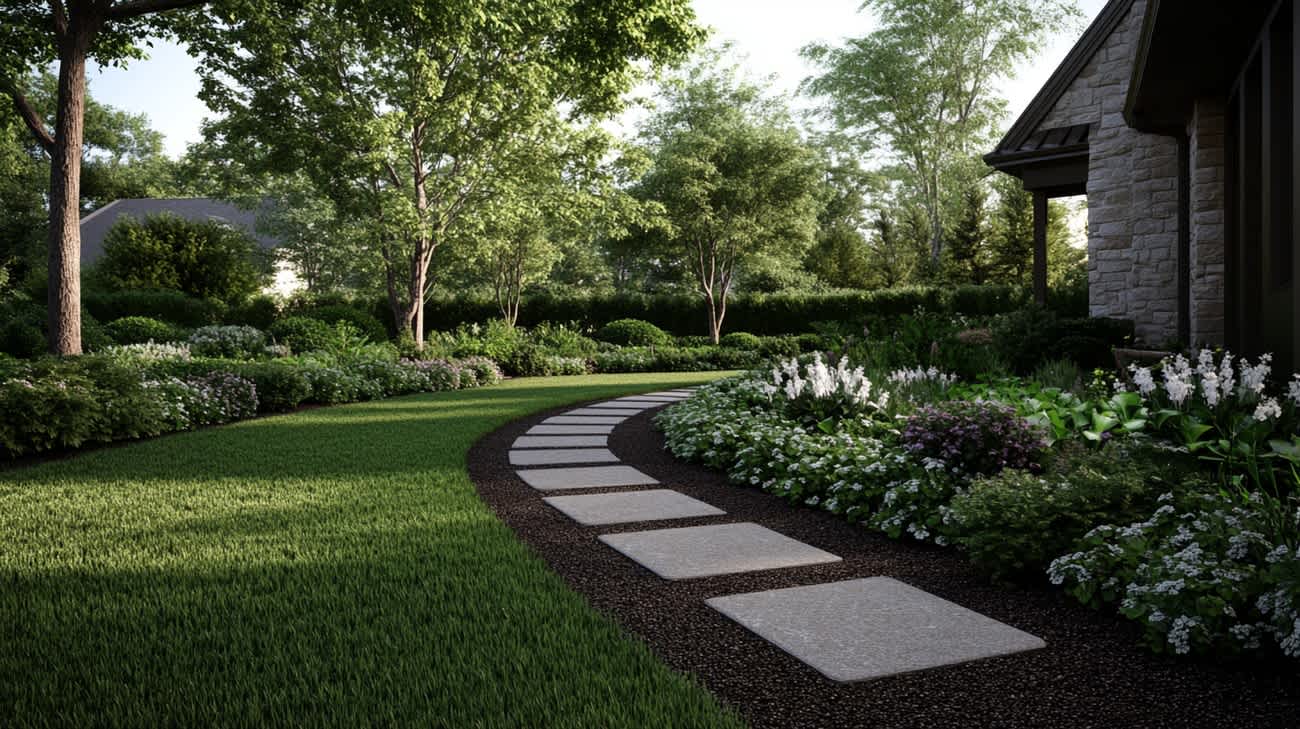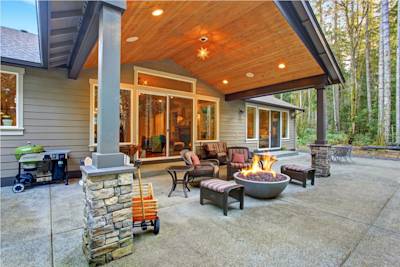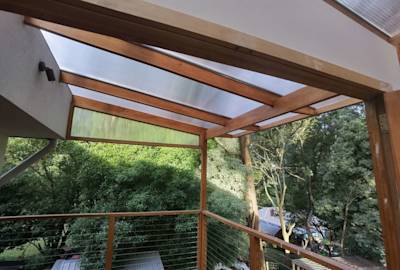Landscaping stones are more than mere rocks. They are the very foundation and the enchanted elements that add grandeur and aesthetic appeal to your garden. The beauty of using landscaping stones is their versatility. Whether you're looking to create a serene walkway, a charming rock garden, or a stylish patio, these stones are your perfect approach.
Understanding Landscaping Stones
Landscaping stones, also known as garden stones or decorative stones, are used in garden designs to give structure and aesthetic appeal. They come in a range of sizes, shapes, and colors to complement any garden style or theme, and can either be natural or man-made.
Types of Landscaping Stones
There is no one-size-fits-all approach when it comes to landscaping stones. Every landscape project requires a different kind of stone, depending on the desired outcome and aesthetic appeal. Here are some of the most common types:
- Pebbles: These are small, rounded stones that are perfect for creating pathways or filling in spaces between larger stones.
- Gravel: It's composed of small rock fragments and is ideal for driveways or as a substrate in garden beds.
- Cobblestones: These are larger, rounded stones that are perfect for creating pathways, patios, and more.
- Flagstones: These are large, thin, flat stones that are perfect for patios, walkways, and stepping-stone paths.
- Boulders: These are large and often irregularly shaped stones often used as focal points in rock gardens or as boundaries.
Enhancing Your Garden with Landscaping Stones
Below are some innovative ways you can utilize landscaping stones in your garden;
Landscaping Stones for Pathways
Pathways guide visitors through your garden, making them one of the most functional ways to use landscaping stones. Use a variation of pebbles, cobblestones, and flagstones to create visually engaging paths.
Creating Rock Gardens
Combining plants with landscaping stones can create a unique, low-maintenance garden that stands out. Using boulders as centerpieces and gravel for ground cover makes a stunning rock garden that requires minimal upkeep.
Setting Boundaries with Landscaping Stones
Use stones as an attractive barrier to separate different areas in your garden. Boulders can be used as a natural edge for a flower bed or to section off a garden pond from the rest of the garden.
Landscaping Stones for Patios and Decks
Flagstones with their flat, broad shapes make an ideal foundation for a garden patio or deck. They provide a weatherproof surface that's perfect for outdoor furniture and gatherings.
Buying Landscaping Stones: Key Considerations
When shopping for landscaping stones, it's essential to consider the following:
- Size and Weight: Ensure that the size and weight of the stones are suitable for your intended use. Larger, heavier stones may not be suitable for DIY projects.
- Style and Color: Choose stones that match or complement the style and colors in your existing garden.
- Cost: Like any other project, cost considerations are essential. Natural stones can be more pricey than man-made ones, but their aesthetic appeal is unparalleled.

Frequently Asked Questions about Landscaping Stones
What types of landscaping stones are available?
There is a wide variety of landscaping stones available, each with a unique aesthetic appeal and varied functionality. Some popular types include:
- River rock: Smooth, rounded stones typically used for ground cover, drainage purposes or pathways.
- Pea gravel: Small, smooth pebbles often used in paths or driveways.
- Flagstones: Flat slabs of natural stone which work well for patios and walkways.
- Decomposed granite: Often used as a patio base due to its compacting qualities.
- Cobblestones: Used in driveways due to its strength and durability.
- Lava rock: With its vibrant color, it's often used in rock gardens for aesthetic appeal.
This isn't an exhaustive list so it's best to research or consult with a landscaping professional to find the right stone for your specific needs.
Can landscaping stones help with drainage issues?
Yes, landscaping stones can help with drainage issues. They can be used to construct a dry creek bed to redirect water flow, used in French drains, or simply used as ground cover over a particularly wet area to allow better evaporation and decrease soil erosion.
How to choose the right landscaping stones?
When choosing landscaping stones, you want to consider the specific function you need them for, the aesthetic you’re aiming for, and your budget. Each type of stone has different characteristics. For example, if you require stones for a walkway, you might consider flagstones for their flat surface. On the other hand, if you need stones for a decorative purpose, you could consider river rocks or cobblestones.
How to properly maintain landscaping stones?
Landscaping stones are relatively low maintenance. However, applying a sealant can help to maintain the color and prevent erosion, especially in high-traffic areas. Regular cleaning to remove dirt and debris can also help keep your stones looking their best. With landscaping stones used for landscaping purposes, it's recommended to top them up periodically as they can sink into the ground over time.
Are landscaping stones environmentally friendly?
Landscaping stones indeed come with several environmental benefits. They're durable, require little to no water for maintenance as compared to grass or other greenery, and they don't degrade over time which minimizes waste. Choosing locally-sourced stones can also reduce the carbon footprint associated with transportation.
How much do landscaping stones cost?
The cost of landscaping stones varies depending on the type of stone, its quality, and where it is sourced from. It's always a good idea to shop around, consult with various suppliers, and get a few quotations before making a final decision.
How to install landscaping stones?
While the difficulty of installing landscaping stones depends largely on the specific project and type of stone, the general process involves preparing the area by removing any existing vegetation, leveling the ground, installing weed fabric if desired, and then spreading, arranging, or stacking the stones as required. Some stones like flagstones may require a sand or decomposed granite base for leveling purposes. Major projects may require professional assistance.
Landscaping stones or mulch, which is better?
Both landscaping stones and mulch have their own benefits and it really depends on your individual needs. Stones are durable, and generally require less maintenance, but can be more expensive. Mulch is cheaper and great for soil health, but decomposes over time and needs to be replaced.
Can landscaping stones increase property value?
Absolutely. Well-landscaped yards with aesthetically pleasing stone features can indeed increase property value. Landscaping stones can enhance curb appeal, create functional outdoor living spaces, and demonstrate that a property is well-maintained and cared for.
Are landscaping stones safe for pets?
In general, landscaping stones are safe for pets. However, dogs might attempt to chew smaller stones like pea gravel. Larger stones pose less of a choking hazard, but should still be monitored around your furry friends. It's always good practice to supervise pets in any landscaped areas.

Pros of Landscaping Stones
Variety and Aesthetic Appeal
One of the most significant advantages of using landscaping stones is their aesthetic appeal. They come in a large variety of shapes, sizes, colors, and textures, giving you the flexibility to choose the right type to complement your outdoor décor. Whether you're going for a rustic, minimalist, or contemporary design, there is a landscaping stone that will match your creative vision.
Low Maintenance
Landscaping stones require very little to no maintenance. Once in place, these stones can retain their natural look for years. They do not demand regular watering, trimming, fertilizing, or cutting as plants do, which saves time, effort, and resources. These stones do not decay over time, so you do not need to worry about replacing them regularly.
Weather Resistant
Unlike plants or wooden materials that can be easily damaged by harsh weather conditions, landscaping stones can withstand extreme weather variations. They are not affected by frost, heat, or rain, making them a durable choice for landscaping needs.
Erosion Control
By providing a sediment barrier and ground cover, landscaping stones effectively control soil erosion, particularly on slopes and embankments. They prevent the washing away of soils during heavy rains, thus protecting the landscape and providing stability to other plants and structures within the area.
Cons of Landscaping Stones
Initial Cost
One of the significant drawbacks of landscaping stones is their initial cost. While they are a one-time investment due to their durability, the upfront cost can be hefty. This includes not only the cost of the stones themselves but also the cost of transportation (due to their weight) and installation.
Difficulty in Installation
Installing landscaping stones is neither an easy nor a quick process. It requires proper preparation of the ground, including leveling and sometimes the installation of a weed barrier. Additionally, due to their size and weight, moving and positioning them requires effort. While not impossible, do-it-yourself installation can be physically demanding.
Hard to Change or Rearrange
Once installed, landscaping stones are not easy to rearrange. Changing the layout would require significant time, labor, and potentially additional costs. This may limit your ability to update your landscape design as frequently as you might with plant-based or other, lighter-weight landscaping materials.
Potential for Injuries
Landscaping stones, particularly the small, loose type, can potentially cause injuries. They can be a tripping hazard if not properly installed or maintained. Additionally, kids might throw them or play around with them, leading to accidental injuries.
Can Affect Plant Growth
Depending on the type and placement of landscaping stones, they can affect the growth of plants. Some stones may restrict water flow, resulting in dry spots, while others might retain too much heat, which could be an issue for some plant types.
May Attract Pests
Lastly, landscaping stones, particularly larger ones, could provide a hiding place for pests like rodents, bugs, or even snakes. Regular monitoring and maintenance are necessary to avoid unwelcome visitors in your garden.

Myths / Misconceptions about Landscaping Stones
Landscaping stones serve a variety of purposes including blending with the natural environment, creating a behavioral setting, providing visual interest, or controlling soil erosion. Despite their essential role, there are still some common misconceptions about landscaping stones. In this section, we'll unravel some of these myths or misconceptions.
Myth 1: Landscaping Stones Don’t Require Maintenance
Many people believe that because stones are durable and resilient, they don't require any maintenance. While it is true that stones can withstand harsh conditions, they are not entirely maintenance-free.
Over Time, they Collect Debris
Over time, stones can collect dirt, leaves, and other debris. These foreign materials can make your landscaped area look less appealing. Thus, occasional cleaning is necessary to keep your landscape stones in the top shape. Use a garden hose to clean small stones, while larger ones might need pressure washing.
Weed Growth is Also a Problem
Another misconception associated with landscaping stones is they prevent weed growth. While it's true that they do minimize the likelihood of weeds, they can't completely eliminate the problem. Over time weeds can grow in the spaces between your stones, requiring regular weeding or use of a weed killer.
Myth 2: All Landscaping Stones are the Same
A common misconception about landscaping stones is that they are all the same. This couldn't be further from the truth.
Varieties of Landscaping Stones
There are numerous types of landscaping stones available, each with distinct features and benefits. For instance, crushed stone is excellent for paths and patios, while river rock stones are perfect for drainage issues. Decorative boulders can create a striking landscape features while pea gravel is fantastic for creating comfortable walking surfaces. In other words, you should choose stones that are ideal for your specific needs.
Color and Size Also Matter
In conjunction with the type of stone, the color and size of landscaping stones also do matter. Large, light-colored rocks reflect more heat and can create a micro-climate, adversely impacting your plants. Smaller, darker stones might be better suited to areas with delicate plants.
Myth 3: Landscaping Stones Improve Drainage
While it's true that some types of landscaping stones can improve drainage, it's not always the case. Some people incorrectly assume that simply adding stone to a wet area will solve their drainage problems.
Stones Alone are not Enough for Drainage
Improving drainage involves much more than just adding stones, you may need to plan to create a proper slope for water runoff, install a French drain or use other techniques to ensure water drains away from your property effectively. Stones are just one aspect of good landscape drainage.
Myth 4: Landscaping Stones are Expensive
While it's true that some types of stone can be expensive, there are many affordable options available.
Selection of Economical Stones
Crushed stone, pea gravel, and lava rock are typically less expensive than marble chips or large decorative boulders. Furthermore, consider the long-term benefits like durability and minimal maintenance when considering the cost.
Myth 5: Landscaping Stones are Difficult to Install
The installation of landscaping stones largely depends on their purpose and type. Some projects might require more effort than others.
Need for Proper Installation Technique
Installing a gravel walkway is a relatively simple process that most homeowners can complete in a weekend. Laying a flagstone patio or building a rock wall requires more skill and effort. Ensuring that your project has a solid base, proper drainage, and that stones are secured safely is crucial for easy installations.
By debunking these common myths, we are able to make better and informed decisions when it comes to landscaping stones. From maintenance to selection of the right stone, every minute detail contributes to creating a stunning landscape.
Summary
Landscaping stones are certainly the unsung heroes of outdoor design, contributing both functionality and aesthetic appeal. They can revolutionize your yard into an inviting outdoor space, injecting personality and possibly raising the value of your property. From pebbles to large landscaping boulders, there's a stone for every taste and purpose. They can enhance a garden's natural beauty or create practical walkways, adding a touch of nature to your homestead.
There's no limit to the imaginative uses of landscaping stones. They can define the contours of a property, establish stepped gardens or simply add contrasting texture to a predominantly green landscape. The key is in the details, and the addition of a well-placed landscaping stone can make all the difference. With maintenance far simpler than that of plants, stones are a long-lasting and durable option for enhancing your outdoor areas.
Investing in landscaping stones isn’t just about creating an appealing backyard, it’s about creating an atmosphere, a sanctuary for relaxation. It's obvious to see why these landscaping accessories are gaining popularity among homeowners and designers. They’re versatile, adding function and form to our yards while requiring minimal upkeep. Landscaping stones truly offer a unique blend of practicality and charm.
About Solid Construction & Design
At Solid Construction & Design, we are Sacramento, CA's most trusted and dependable construction and design firm. Rooted in a strong foundation of customer service and grounded by an expertly skilled team, we've been transforming residential and commercial spaces into visions of solid beauty. From simple renovations to ground-up construction, we take on each project with careful precision and thoughtful design, pouring our passion and dedication into every tile, door, and window we touch. We believe in creating more than just buildings - we create relationships, memories, and lasting creations of solidity and purpose. Your project becomes our mission, and we won't stop until you're as proud of our work as we are.







